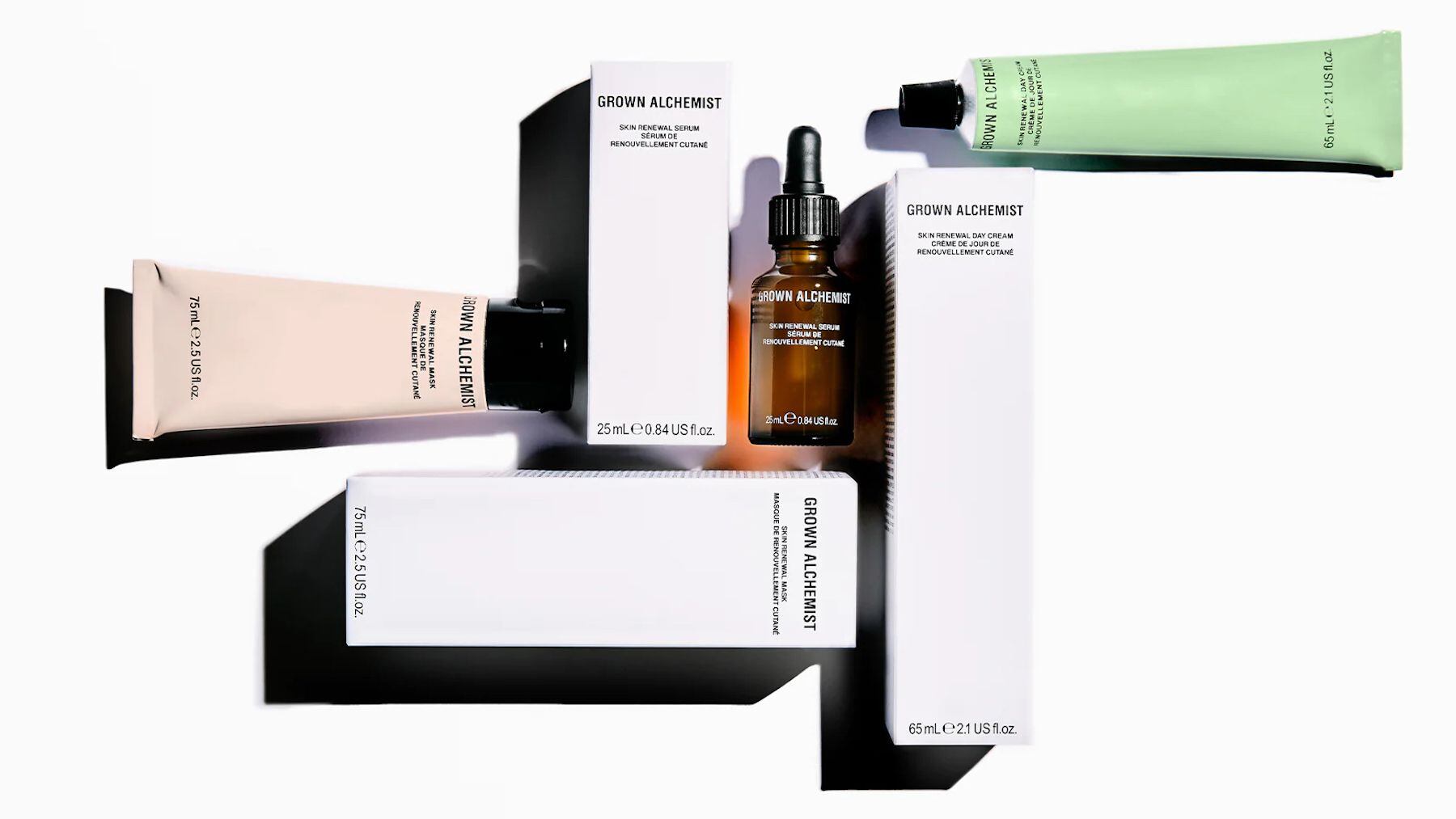
Two years after joining the L’Occitane International SA portfolio, skincare brand Grown Alchemist is being taken private.
L’Occitane announced on Apr. 2 before Hong Kong trading hours that its outgoing chief executive officer André Hoffmann, an investor in the brand since 2022, is increasing his ownership stake in Grown Alchemist. The transaction will make him the majority owner and buy L’Occitane out of its equity position.
Grown Alchemist’s current CEO Anna Teal will hold a minority stake and remain in her role at the newly private company. The total purchase amounted to €28 million ($30 million). L’Occitane purchased a 49 percent stake in the company in March 2022 for €5 million ($5.39 million), increasing its ownership to a majority stake in May 2023 with a further €10 million ($10.73 million) investment.
“Having been an investor and supporter in the potential of the Grown Alchemist brand for a number of years, I’ve been very impressed with the growing momentum, exciting partnerships and successful entry into the China market,” said Hoffman in a statement. Hoffman purchased his initial stake in the brand in 2022 while serving as CEO.
“With the strong leadership team in place and exciting new developments planned for the coming years, Grown Alchemist is well positioned to accelerate its growth, particularly under a more focused ownership and investment structure,” he added.
Founded in 2008 in Australia with a focus on natural ingredients, Grown Alchemist accounted for a small yet fast-growing portion of L’Occitane International’s sales. The brand saw over 50 percent sales growth and revenue in the strong double-digit millions for the 2024 fiscal year. While under L’Occitane’s ownership, it furthered international expansion, including into travel retail, and widened its product assortment.
“This acquisition is really born out of, ‘How can we go even faster and in a much more focused way?’” said Teal. “It isn’t a forced transaction. It’s completely amicable. This is not the group wanting to dispose of the asset because it no longer wanted it in its portfolio. That is not the situation. They would have been quite happy to keep it in its portfolio.”
During his tenure as L’Occitane International CEO, which began in 2021, Hoffman oversaw the acquisition of Grown Alchemist as well as Sol De Janeiro, which has gone on to become L’Occitane’s second-largest portfolio brand with triple-digit year-over-year growth. In January 2024, the company announced that Hoffman would step down and Laurent Marteau would assume the role on April 1. Previously the CEO of Aromatherapy Associates, Teal took on the chief executive position at Grown Alchemist last summer after co-founders Jeremy and Keston Muijs left the brand in May. They no longer hold a stake in the company.
This change in ownership comes after Bloomberg reported in February that a possible deal for asset management firm Blackstone Inc. to take L’Occitane International private was in the works. The report set off calls from minority shareholders for L’Occitane’s fast-growing portfolio brand Sol de Janeiro to be spun off and listed on the US stock exchange. A representative from L’Occitane international declined to comment, citing a quiet period ahead of the company’s fiscal year 2024 fourth-quarter earnings set to be released at the end of April.
Maintaining Momentum
Grown Alchemist’s growth over the past year came from international expansion, including its China debut in July 2023, as well as the popularity of its body care products and its strength with male shoppers, who make up 40 percent of its customer base. According to Teal, it has a “clear line of sight” to reach $100 million in annual revenue within the next three years.
Its brand positioning has pivoted under Teal. “We describe the brand as a biological beauty brand for the design-conscious,” she said. “Clean” is no longer a main area of messaging as the brand emphasises biotech, bioactive ingredients and skin barrier health.
“It’s not that I don’t see it as a clean brand. I just don’t think that that is enough anymore for that to be the deciding factor for why a consumer would pick you,” said Teal.
Going forward, the brand will be leaning into body care, with an upcoming launch in the category. For North America-based marketing, it is also planning to announce a partnership with a music festival and a “lifestyle collaboration” providing access to “hundreds of thousands of consumers within a highly engaged community,” said Teal.
It will also expand its retail presence, with two new European partnerships and a flagship store in central London planned for later this year. Standalone store expansion further in the future will be focused on experiential flagships in key cities, said Teal. Direct-to-consumer currently accounts for 40 percent of sales. The brand has ended retail partnerships in the past; it left Ulta Beauty following the L’Occitane acquisition.
“We just felt that the space that we had wasn’t right for a brand in the stage that we were at to be able to really launch yourself well there,” said Teal.
With North America and China accounting for close to half of the brand’s sales, more international expansion is under consideration, especially in Asia.
“I am so confident that 2024 is going to be this breakthrough year,” said Teal. “The brand is about to unleash itself into the world over the course of the next 12 months.”


